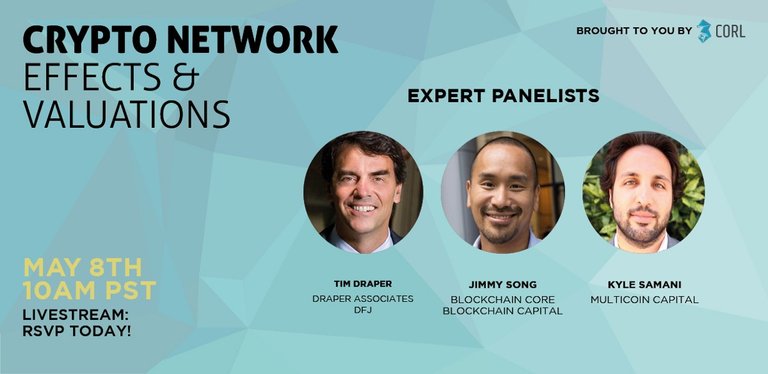The internet is filled with spammy top 10 lists. Unfortunately clickbait seems to be all anyone is interested in publishing.
I decided to dig deeper. Information is power and while “influencers” everywhere share their views, it can be challenging to get informed decisions from the true leaders in the space. That is the purpose of this post — to inform, to speculate, to share — straight from the guys and gals leading the blockchain movement.
So, if you got the leading crypto creators, investors and innovators in a room together, what would you ask them?
Here are the questions:
- What 1st got you excited in blockchain? When? Why?
- When will > 50% of Americans use (or interact via) crypto in some capacity in their daily lives?
- What is the most underhyped/unexpected use case for blockchain?
- What tip would you share to newbies just getting started down the rabbit hole?
- If you had to put all your money into a single asset (stocks, gold, dollars, specific crypto etc…), which would you choose?
- Make a bold 10 year prediction about blockchain as a whole…
And now, our influencers (in no particular order).
12 True Crypto Thought Leaders:
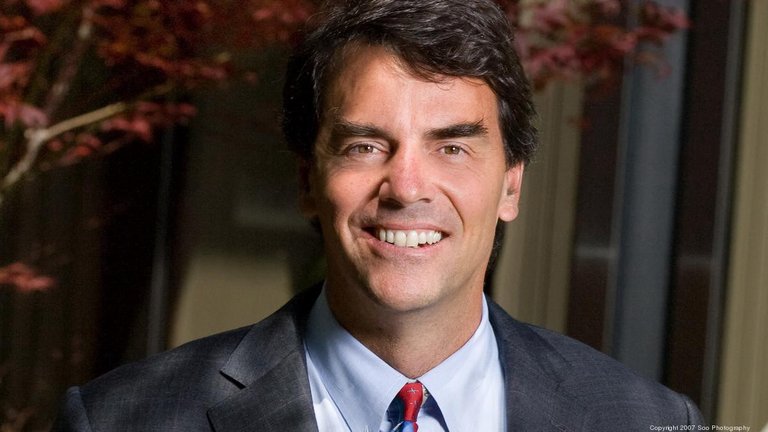
Tim Draper is the founding partner of Draper Associates and DFJ and widely recognized as one of the most prominent venture capital and entrepreneurial leaders in the world. He was listed as #46 of the most outstanding Harvard alumni, #7 on the Forbes Midas List among other awards. Tim has been an outspoken proponent of Bitcoin and blockchain and is regarded as one of the first VCs in the space.
Twitter: @timdraper
What 1st got you excited in blockchain? When? Why?
2006. I met a Korean who was spending all his free time in the virtual world. He bought his son a virtual sword for a game for $40. Since then, I was looking for a currency that would work virtually. When bitcoin came along, I backed CoinLab, and then bought some bitcoin from them. I also let them use the money to mine it. The mining got front run and the bitcoin got stolen by MtGox. I was confident though that this decentralized, frictionless currency would be important, so later I bought up the Silk Road bitcoin from the US Marshall’s office.
When will > 50% of Americans use (or interact via) crypto in some capacity in their daily lives?
Already 40% of South Koreans have Bitcoin wallets. I expect the US will follow shortly. Maybe three years tops.
What is the most underhyped/unexpected use case for blockchain?
For Bitcoin, it has to be that it is a brilliant store of value, more secure than your bank money, but for Blockchain, the biggest surprises are how it can transform government. The best is yet to come.
What tip would you share to newbies just getting started down the rabbit hole?
HODL. But some bitcoin on Coinbase, and put some other crypto (Tezos, Bancor, Credo) on a Ledger. See how empowered it makes you feel. No more kowtowing to the banking/regulatory complex.
If you had to put all your money into a single asset (stocks, gold, dollars, specific crypto etc…), which would you choose?
100% Bitcoin. And then I would fund companies with bitcoin that paid their employees and suppliers in bitcoin.
Make a bold 10 year prediction about blockchain as a whole…
Bitcoin and Blockchain will be bigger than the Iron Age, the Renaissance, the Industrial Age, and the Internet Age combined. It will change everything from how we deal with each other (Commerce, Banking) to how we take care of ourselves (HealthCare) to how we govern ourselves (Virtual Competitive Governance).
LIVESTREAM ROUNDTABLE Tim Draper, Jimmy Song and Kyle Samani on the Value of Crypto Networks and Network Effects
Tune In: 5/8 @ 10am PST
Jimmy Song

Jimmy Song started in Bitcoin Development in 2013 and has worked on numerous Bitcoin projects such as Bitcoin Core, btcd, Armory, pycoin and colored coins. He is now a venture partner Blockchain Capital (a leading crypto fund) and has served as a developer and programmer at more than a dozen start-ups. Most recently, he served as principal architect at Paxos and vice president of engineering at Amory Technologies, where he managed the development of enterprise-level Bitcoin wallet software. Jimmy is also the editor and author of popular blog, Bitcoin Tech Talk and YouTube Off Chain with Jimmy Song runs a seminar Programming Blockchain teaching developers to build on blockchain.
Twitter: @jimmysong
What 1st got you excited in blockchain? When? Why?
Blockchain by itself hasn’t actually excited me all that much. As a technology it’s only mildly more interesting than a database. What’s actually interesting is Bitcoin because Bitcoin is decentralized, that is, doesn’t have a single choke point that can be regulated. I got excited about Bitcoin back in 2011.
When will > 50% of Americans use (or interact via) crypto in some capacity in their daily lives?
I imagine in about 20 years, most people will store value in Bitcoin in some fashion whether they know it or not. Medium of exchange is another story.
What is the most underhyped/unexpected use case for blockchain?
By far, store of value. Pretty much every other use case is overhyped and untenable (health care on the blockchain! stupid dotcom idea on the blockchain!). Most of these use cases are not really innovating per se, just using the word “blockchain” to mean a permissioned database with public auditing. Much like the words “AI” or “cloud”, it’s a way to make boring technology sound more impressive and interesting.
What tip would you share to newbies just getting started down the rabbit hole?
Go learn what Bitcoin actually is and why it’s valuable. Too many people just get into Bitcoin as a legal way to gamble. Understand what it is that you’re investing in and act accordingly. If you don’t have conviction about your investment, you’re going to sell when there’s any volatility (up or down). The real gains come from holding and that requires conviction, especially when prices dip.
If you had to put all your money into a single asset (stocks, gold, dollars, specific crypto etc…), which would you choose?
Bitcoin. It has the best chance of becoming a long-term store of value. Generally, that’s what you want out of an investment is something that keeps its value over the long-term. Bitcoin has shown it can do that the past 9 years.
Roger Ver
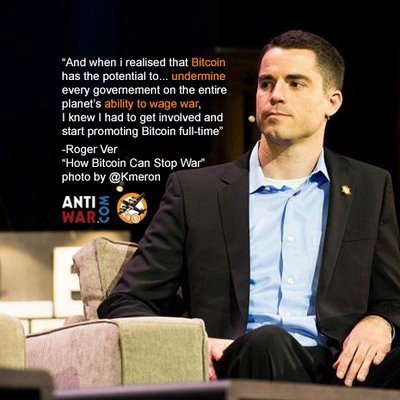
Roger Ver, often dubbed Bitcoin Jesus was one of the earliest investors in and proponents of Bitcoin. He’s made hundreds of millions, if not billions off his investments and was also an early investor in bitcoin.com, blockchain.com, Zcash, BitPay and Kraken. He led a fork of Bitcoin, known as Bitcoin Cash to address scaling problems with Bitcoin’s infrastructure and Core team which created quite a stir…
Twitter @rogerver
What 1st got you excited in blockchain? When? Why?
I became excited by the prospect of the additional economic freedom that will be brought to the world thanks to the invention of Bitcoin.
Feb 2011 (One Bitcoin was less than one dollar)
When will > 50% of Americans use (or interact via) crypto in some capacity in their daily lives?
I don’t know. Maybe 10 more years.
What is the most underhyped/unexpected use case for blockchain?
Money! People don’t realize how important to the world having un-censorable money is!
What tip would you share to newbies just getting started down the rabbit hole?
Visit Free.bitcoin.com to get started and receive some free BCH.
If you had to put all your money into a single asset (stocks, gold, dollars, specific crypto etc…), which would you choose?
As attractive as crypto currencies are, they are highly speculative. To ensure the long term prosperity of myself and my family, I would choose real estate as a long term safe investment if I was limited to a single asset class.
Of course having a diverse portfolio is good advice for everyone.
Make a bold 10 year prediction about blockchain as a whole…
We will look back upon the invention of Bitcoin as one of the most important inventions in all of human history.
[Like this article? Get more like it, invites to livestream roundtables with Tim Draper, Jimmy Song, Roger Ver and more and bonus crypto interviews today free - subscribe on our site: http://Corl.io]
Ronnie Moas

Ronnie Moas is an experienced and highly regarded trader from the world of Wall Street, currently ranked in the Top 20 in accuracy versus more than 4,500 analysts at TipRanks for his 2008–2017 performance. He has been very active in the bitcoin and blockchain space, bringing solid fundamentals and technical analysis to the crypto community. He is a frequent contributor to The Bad Crypto Podcast and runs his own research firm: Standpoint Research where others can subscribe for insider forecasts.
Twitter: @ronniemoas
What 1st got you excited in blockchain? When? Why?
I first heard about the blockchain about a year ago and realized quite quickly that this was going to be a game-changer and impact every industry from casinos and banks to logistics and apparel companies … and everything in between.
When will > 50% of Americans use (or interact via) crypto in some capacity in their daily lives?
I don’t know how long it will take for us to get to the point where 50% of Americans use or interact via crypto in some capacity in their daily lives … my guess is that we are still at least 7 to 10 years away from that point.
What tip would you share to newbies just getting started down the rabbit hole?
As for advice to people just getting started … I would recommend my service. It is an award-winning service. I put out daily notes via email several times a week and dozens of stock and crypto recommendations during the course of the year. I have a top 20 ranking for my performance the last 10 years versus more than 4,000 people in my industry. Every one of my 600 recommendations was time-stamped intraday by at least three different newswires.
If you had to put all your money into a single asset (stocks, gold, dollars, specific crypto etc…), which would you choose?
It would be irresponsible for me to tell you which asset class I would put all of my money into. Every person has a different situation. I would recommend diversification … that is Economics 101 … do not put all your eggs in one basket and do not take a bet you can’t afford to lose.
Make a bold 10 year prediction about blockchain as a whole…
I feel we have a 60%-70% chance to see $BTC $50,000 within three years.
Kyle Samani
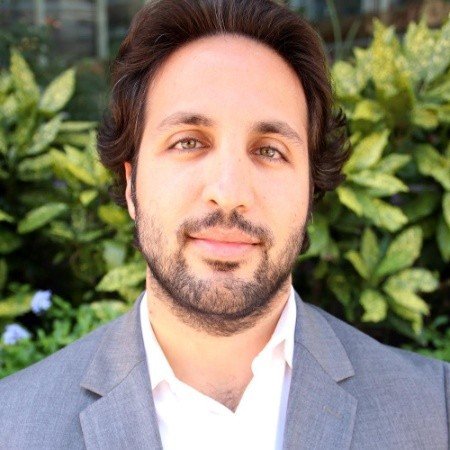
Kyle Samani is cofounder and Managing Partner of Multicoin Capital, a venture capital-esque crypto hedge fund with at least $250M in assets under management (AUM). Prior to starting Multicoin Capital, Kyle ran Pristine (a Google Glass company for surgeons) as CEO, raising $5M and ultimately being acquired. Kyle’s writing and thought leadership has built him up as someone to follow in the ever evolving industry.
Twitter: @kylesamani
What 1st got you excited in blockchain? When? Why?
I found myself unemployed in January 2016 after my first startup, Pristine, which built software for Google Glass for use by surgeons. After spending 2 months playing video games, I discovered Ethereum in March of 2016. I was drawn to Ethereum for two reasons: first, because the underlying platform was open and neutral. After my experiences with Google Glass, I was excited by a platform that couldn’t just be yanked out from under me. And second, I realized that every major financial institution on the planet is just a giant smart contract. That’s when I this was going to be big.
When will > 50% of Americans use (or interact via) crypto in some capacity in their daily lives?
No idea. Not in the next 10 years, at least not directly. Within 10 years, every American will use a service that’s powered by blockchain on the back end.
What is the most underhyped/unexpected use case for blockchain?
The opportunity for open databases by which users share information. Think a completely open Facebook.
What tip would you share to newbies just getting started down the rabbit hole?
Read the smartest people in the space. Token Economy is a good place to start.
If you had to put all your money into a single asset (stocks, gold, dollars, specific crypto etc…), which would you choose?
The Multicoin fund :)
Make a bold 10 year prediction about blockchain as a whole…
In 10 years, all digital money around the world will be managed using a blockchain of sorts.
Peter McCormack

As host of the What Bitcoin Did podcast and prolific writer on all things Bitcoin and cryptocurrencies, Peter McCormack’s trading and blockchain focused contribution to the community cannot go unnoticed. He has built a sizable following, remains very active on Twitter and after a career in startups and the digital media sphere, seems to have found his calling as a crypto creator and trader.
Twitter: @whatbitcoindid
What 1st got you excited in blockchain? When? Why?
Bitcoin first got me excited about blockchain. The whole process of buying it and sending it to others without an intermediary was cool.
When will > 50% of Americans use (or interact via) crypto in some capacity in their daily lives?
Might take over 10 years.
What is the most underhyped/unexpected use case for blockchain?
Elections.
What tip would you share to newbies just getting started down the rabbit hole?
Go slowly, read as much as you can and take profit.
If you had to put all your money into a single asset (stocks, gold, dollars, specific crypto etc…), which would you choose?
Crypto.
Make a bold 10 year prediction about blockchain as a whole…
There will be a country which has Bitcoin as it’s primary currency.
Kenneth Ameduri

As host of Crush The Street and owner of KnowMoneyTrends.com, Kenneth has built a strong and loyal following around his trading and forecasting expertise. Crush The Street’s Youtube channel has built an impressive 34k+ subscribers and as a source for unconventional financial news, top crypto interviews and actionable advice from all areas of finance.
Twitter: @crushthestreet
What 1st got you excited in blockchain? When? Why?
I got interested in bitcoin in 2012. Early investor. Learned about the monetary aspects of it. Furthered my concept on what money could be and how this decentralized environment gives people true freedom. In 2013, I produced the microdocumentary Banker’s Worst Fear where we said bitcoin would be exactly that. In 2017, with comments of guys like Jamie Dimon and the all out frenzy cryptocurrencies have thrown regulators into, I think we are seeing this certainly play out…
When will > 50% of Americans use (or interact via) crypto in some capacity in their daily lives?
The rate of adoption is only speculation. However, the adoption of technology is outpacing Moore’s Law, so I wouldn’t be surprised if the world is interacting with crypto in a matter of 3–5 years the same way people have access to the internet. There is no historical precedence to compare this adoption to because technology is only advancing daily, but I can guarantee people will be shocked when they look back in hindsight at how far things will come in a short period of time.
What is the most underhyped/unexpected use case for blockchain?
Hiding money from your wife or husband prior to a divorce. 😉 But really, I think the majority of us enthusiasts have it relatively good. We are in societies for the most part that aren’t massively riddled with collapsing economies and banking shutdowns etc. (I think it’s coming, but not largely here yet.) But truly, the greatest beneficiaries percentage wise have been those in countries like Venezuela, or Argentina etc., that have seen their funds tied up by bankers or flat out having to watch their savings evaporate in terms of local fiat. This is truly the most underappreciated benefit to cryptos.
What tip would you share to newbies just getting started down the rabbit hole?
It’s an exciting adventure. Start slow. Invest in the top cryptos, I’d start with bitcoin and Ethereum. It’s a great time to establish a position now that we’ve corrected and the correction might play out for an extended period of time, so it’s a good time to accumulate.
If you had to put all your money into a single asset (stocks, gold, dollars, specific crypto etc…), which would you choose?
Tough one. Fun unexpected answer would be Disney over a 50 year timeline. This is a core business that’s embedded into the fabric of all children globally. 50 years, I think Bitcoin will still be incredibly valuable but longer term, it’s still technology and could in theory be replaced. If I needed to invest with 100% certainty over the course of 1,000 years, I would pick gold. (also strategically located real estate.)
Make a bold 10 year prediction about blockchain as a whole… I think blockchain will be heavily integrated with AI. I believe in the course of 10 years, 50% of the jobs in the US will be at risk if not completely displaced in that amount of time.
Trent Lapinski — CryptoDisrupted

Trent Lapinski is a SF based entrepreneur, developer and growth hacker. He bootstrapped CyberChimps to $1M+ in revenue with millions of downloads of his popular Wordpress themes. Today he co-hosts the Crypto Disrupted podcast, runs one of the top crypto blogs on Medium.com and is big on blockchain.In another life he worked at a startup with two of the founders of Myspace helped Playboy on Internet marketing and web development.
Twitter: @TrentLapinksi
What 1st got you excited in blockchain? When? Why?
I’ve been interested in distributed computing systems since I was a kid and first read the book Snow Crash by Neal Stephenson. In the book there was a Matrix like metaverse based on distributed computing and mesh networking.
After Bitcoin was developed I started following it in 2010, and started tracking it in 2015. However, I didn’t start invest until 2017.
I realized around 2015 it had the potential to disrupt banking, and in 2017 decided to focus on it as a possible career path.
When will > 50% of Americans use (or interact via) crypto in some capacity in their daily lives?
3–10 years. It depends on when a major bank or utility implements blockchain technology discretely and replaces an existing systems with blockchain tech.
What is the most underhyped/unexpected use case for blockchain?
Gaming. Blockchain has the potential to revolutionize the gaming industry, and enable players to take digital assets with them and sell them in marketplaces in ways that weren’t possible before.
Legal. Smart contracts will replace most lawyers.
Automation. Blockchain is going to be the foundational software layer for future supply chain management solutions for a wide range of industries.
What tip would you share to newbies just getting started down the rabbit hole?
Only invest what you can afford to lose. If you can’t understand the white paper, you probably shouldn’t be investing in it.
If you had to put all your money into a single asset (stocks, gold, dollars, specific crypto etc…), which would you choose?
Today, Bitcoin. That might change in the near future.
Make a bold 10 year prediction about blockchain as a whole…
The blockchain as a technology is exciting now, but in the future it will be ubiquitous. It will power everything from supply chain management, to video games, to cryptocurrencies and even fiat currency. We are in the Myspace phase of where the blockchain is currently, and it will be years before we see a major distributed computing company rise to the level of centralized tech companies, but it will happen eventually.
[Like this article? Get more like it, invites to livestream roundtables with Tim Draper, Jimmy Song, Roger Ver and more and bonus crypto interviews today free - subscribe on our site: http://Corl.io]
Haseeb Qureshi
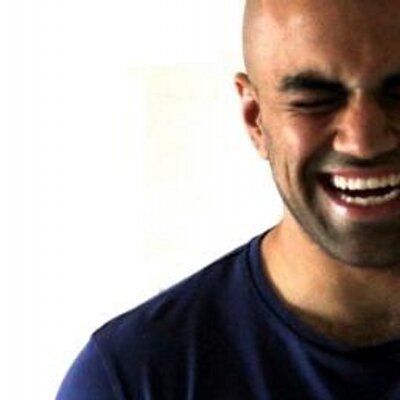
Haseeb Qureshi is a retired poker pro and one of the best no-limit Hold’em players in the world. He began at 16 ad by 21 had retired as a self-made millionaire. He’s the best selling author of a book on the philosophy of poker and at age 23 decided to give away all his money ~$500k and start over. He joined a code bootcamp, became a formidable dev and was poached to work at Airbnb.
Today Haseeb spends most of his time chasing the blockchain — writing and code to create the next wave of innovation. He’s an Earn.com alum and frequent contributor on Medium and the Free Code Camp publication.
Twitter: @hosseeb
What 1st got you excited in blockchain? When? Why?
I first got excited about blockchain while was working as an engineer Airbnb doing payments fraud detection. Working closely with all the jagged edges of the traditional financial system, I realized how poorly designed it all is. Our current financial system runs on crusty 50-year-old cogs, and is poorly designed for the modern world. All of the nice interfaces like credit cards, Paypal, and Venmo are just nice abstractions over a pretty broken system.
As an engineer when you have a janky, broken codebase, your first instinct is: we should throw this out and do a rewrite. The more I learned about blockchain, I realized this is exactly what Bitcoin was — a first principles rewrite of the financial system. That sent me down the rabbit hole.
When will > 50% of Americans use (or interact via) crypto in some capacity in their daily lives?
I’d guess this will take at least 10–15 years. About 40% of Americans are above the age of 50 and about 20% live in rural areas, so using crypto is not going to penetrate deeply for a long time. But the same is largely true of other fintech services like Venmo.
What is the most underhyped/unexpected use case for blockchain?
Underhyped would definitely be crypto-fiat. Almost no one talks about it, but it’s the most likely major outcome and will likely dominate non-state-backed cryptocurrencies once they’re finally circulating.
What tip would you share to newbies just getting started down the rabbit hole?
Focus on tech. The tech is what matters, the marketing is mostly noise. If it sounds too good to be true, it probably is.
If you had to put all your money into a single asset (stocks, gold, dollars, specific crypto etc…), which would you choose?
Bitcoin, without a doubt.
Make a bold 10 year prediction about blockchain as a whole…
Well, if I’m going to be bold… I predict Bitcoin and Ethereum will be the only cryptocurrencies that still have meaningful market caps 10 years from now. Bitcoin will dwarf Ethereum by a large multiple. Central banks will hold Bitcoin as part of their reserves, but Ethereum will be used extensively for payments and smart contracts and the world won’t look particularly more decentralized. Eventually an international system of crypto-fiat will be negotiated among major economic powers, which will displace most Ethereum use cases. But I suspect that will take more than 10 years.
Brian Fabian Crian — Epicenter

Brian Fabian Crain is the COO of Tendermint, a blockchain company building valuable decentralized protocols that bring simplicity, security, and speed to the world’s blockchains. Brian is also the founder of the Berlin Blockchain Meetup and co-founder and host of the blockchain industry podcast, Epicenter, which reaches 10,000 listeners per week. Brian was previously in charge of Business Development at the enterprise blockchain company Monax. He has degrees in economics, philosophy and cognitive science from The University of Chicago, London School of Economics and University College London.
Twitter: @crainbf
What 1st got you excited in blockchain? When? Why?
I first got excited about Bitcoin in the summer of 2013. I found the concept of a decentralized, global electronic payments and financial system extremely captivating. Since then, I’ve spend practically all my working time focused on this area.
When will > 50% of Americans use (or interact via) crypto in some capacity in their daily lives?
I estimate it will take another 5 years until we see that kind of mass adoption.
What is the most underhyped/unexpected use case for blockchain?
It feels like there is hardly anything that isn’t hyped at the moment! I do think decentralized governance is a massive thing that will have implications in countless directions. This will range from managing protocol upgrades to networks to running entire organizations to creating new political structures and processes.
What tip would you share to newbies just getting started down the rabbit hole?
Spend lots of time learning about the technology instead of thinking about what tokens to buy or how to invest. Of course, our podcast Epicenter would be a potential resource. But going to meetups is also great and I loved Nathaniel Popper’s book Digital Gold for the early history of Bitcoin.
If you had to put all your money into a single asset (stocks, gold, dollars, specific crypto etc…), which would you choose?
I’m not sure that question makes too much sense to me. Fortunately, the ability to diversify risk is pretty fundamental to how the world works. So if such an arbitrary choice was forced on me, I’d go for a stock ETF. e.g. on the SP500 to maximize diversification.
Make a bold 10 year prediction about blockchain as a whole…
- There will be more financial transactions enabled by decentralized networks than on traditional infrastructure.
- It will be as hard to imagine what the world was like without blockchain as it is today to imagine the world without smart phones.
- Bitcoin will be worth $200,000 per coin. (Or not…)
Miguel Cuneta
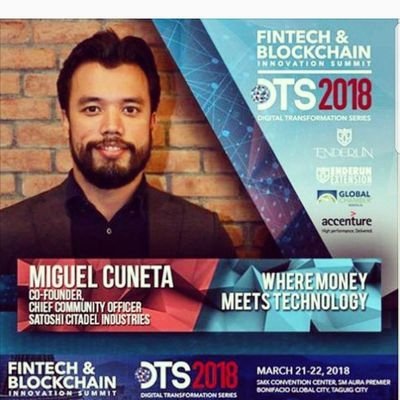
Miguel Cuneta is the founder of Satoshi Citadel Industries (sci.ph), a fintech company building the blockchain based tools of tomorrow for the Philippines. Their portfolio includes Philippine leaders in the areas of exchanges, remittance, payment processing, mobile wallets and more. In addition to his business ventures, he is also an experienced and opinionated writer where he focuses on debunking crypto myths and making a case for what the future of cryptocurrency and blockchain may look like.
Twitter: @MiguelCuneta
What 1st got you excited in blockchain? When? Why?
Early 2013, I heard about Bitcoin. Like most people, I dismissed it as a speculative gamble that seemed like a ponzi scheme. It wasn’t until around October of the same year, after Bitcoin had been on the news a lot, that I decided to take a second look. I bought my first few Bitcoins at $100+ to have some skin in the game, and then proceeded to fall into the Rabbit hole that is the crypto and blockchain world. Just a few months later, I co-founded SCI Ventures Inc. (www.sci.ph) with some like minded friends and never looked back. The promise and potential of the Bitcoin protocol and the technology it unleashed into the world is hard to overstate — I really believe that not since the dawn of the world wide web itself has there been a more exciting technology and opportunity than Bitcoin and Blockchain tech.
When will > 50% of Americans use (or interact via) crypto in some capacity in their daily lives?
I think that the growth of Crypto is phenomenal is the USA. Just looking at Coinbase users (20 Million plus) eclipsing Stock Brokerage firm Charles Schwab, which was established in the 70s, (11 million plus), you can see the trend among young millennials on where they would rather put their money as an investment. I think within the next 3 to 5 years, as the industry and market matures, we will see more mainstream investors get in the space.
But I’m from the Philippines, where out of 100 million citizens, only 3% have credit cards and around 80% do not have access to any kind of formal banking. More than 10 million Filipinos work abroad and send $30 Billion back home annually, getting gouged around 10% for each transaction. For Americans, the promise of Bitcoin and Blockchain tech is not so evident because they have the infrastructure for a sound financial system and people participate in the digital economy as a normal part of daily life. Here, not so much. The thing is, although our financial infrastructure is lacking, we have the fastest smarth phone penetration growth in Asia, where almost 70% already are using a smartphone and the internet. There is a desire for more inclusive financial applications and we believe that this is a perfect storm for crypto adoption on a global scale. Bitcoin wallet app users in the Philippines today are estimated around 4 million and growing. The next 3 to 5 years will be interesting for the adoption of the tech.
What is the most underhyped/unexpected use case for blockchain?
People always say that “money is just the first application of Blockchain”, but I believe that Money is a pretty big deal. Money makes the world go round, so to speak, and if Blockchain tech, especially Bitcoin, can turn money into what is essentially programmable software, making value transfers flow as easy as information transfers flows on the internet, the possibilities are endless. The whole global economy right now is anchored on an archaic and obsolete network of slow, inefficient middlemen and institutions that have gone unchallenged for decades. With the money aspect of Bitcoin and other blockchains, they now have free market competition. The next generation will never understand why it took 3 to 5 business days to “transfer” money across borders, or why financial services were only available on weekdays, during office hours. With Blockchain tech, value will flow as freely as information, and accelerate the growth of global e-commerce exponentially.
What tip would you share to newbies just getting started down the rabbit hole?
I always say “invest in education, not in speculation.” The price of Bitcoin is the least interesting thing about it! Get started with some great resources like www.lopp.net/bitcoin.html. You dont need an economics degree or to understand software to appreciate Blockchain tech. Learn about the technology, use crypto, and watch the birth of a whole industry and a new form of money unfold before your very eyes. It’s truly an exciting time to participate in the development of this technology. Bitcoin opened a pandora’s box of technology and innovation. It is up to you if you want to participate or watch from the sidelines.
If you had to put all your money into a single asset (stocks, gold, dollars, specific crypto etc…), which would you choose?
I already put my money where my mouth is and devoted four years and counting of blood sweat and tears in SCI, our Bitcoin startup. If i had to make a choice of an asset for long term investment, I would choose Bitcoin, easily. My personal portfolio is already mostly Bitcoin, as I have been accumulating on a regular basis since 2013.
Make a bold 10 year prediction about blockchain as a whole…
I made my 10 year prediction in this blog post last week. I always use Bitcoin as a benchmark because, as the first blockchain and cryptocurrency, it is the standard. If Bitcoin fails, it will be hard to make a case for other blockchains or cryptos. That being said, I believe that in 10 years, cryptocurrency will be a multi-trillion dollar global market, with things like ETFs and regulated financial institutions trading them much like we do gold and other commodities. On blockchain as a technology, no financial institution will not have a blockchain strategy or not using blockchain technology one way or another. We will be “streaming money” in a blockchain based world. In the same way Airbnb, Uber, and other applications were unimaginable just a decade ago, new layers built on top of blockchain protocols will be developed , and we won’t be able to imagine life without them. Tokens, Crypto, Bitcoin, and Blockchains will be a part of our daily lives, but mostly because they are imbedded in mainstream applications without the complexities we encounter today. Blockchain protocols will become the internet of money.
Julian Zawistoski — Golem

Julian Zawistowski is founder and CEO of Golem Project, the decentralized supercomputer company that raised $8.6M in 30 minutes in their crowdfunding/ICO. Julian’s company is now valued at $280M and he talks candidly about building a crypto company, managing investors and building a gamechanging disruptive technology.
Twitter: @julianzawist
What 1st got you excited in blockchain? When? Why
Ethereum in 2014. Because then I realised how powerful it can be, doing so much more than only transferring value.
When will > 50% of Americans use (or interact via) crypto in some capacity in their daily lives?
After >50% of developing world use crypt.
What is the most underhyped/unexpected use case for blockchain?
Governance.
What tip would you share to newbies just getting started down the rabbit hole?
Disregard market and prices. Learn why people got really excited about technology. Learn what ideology/world view is behind decentralised technologies. Learn why technology leaders believe this can make a difference.
If you had to put all your money into a single asset (stocks, gold, dollars, specific crypto etc…), which would you choose?
I do not give investment advice.
Make a bold 10 year prediction about blockchain as a whole…
Decentralised technology will help us reshape our economies and societies to meet 21st c. challenges. Centralised public organisations are present, but in many areas they are substituted by decentralised, trustless systems. Traditional businesses use decentralised technologies to some extent but more importantly there is a growing class of business/organisations which role is to facilitate producer/constumer interaction, cutting off middlemen.
[Like this article? Get more like it, invites to livestream roundtables with Tim Draper, Jimmy Song, Roger Ver and more and bonus crypto interviews today free - subscribe on our site: http://Corl.io]
Closing Thoughts
Sometimes it is best to just shut up and listen, especially around highly intelligent folks. Hopefully this post has been just that, bringing together top investors, entrepreneurs, devs, content creators and thought leaders, to share insights and better understand, brainstorm build around this blockchain future.
And what about you. How would you answer. Look forward to reading your replies in the comments below:
- What 1st got you excited in blockchain? When? Why?
- When will > 50% of Americans use (or interact via) crypto in some capacity in their daily lives?
- What is the most underhyped/unexpected use case for blockchain?
- What tip would you share to newbies just getting started down the rabbit hole?
- If you had to put all your money into a single asset (stocks, gold, dollars, specific crypto etc…), which would you choose?
- Make a bold 10 year prediction about blockchain as a whole…
Remember, unseating incumbents takes time, money, traction and a bit of good luck. Time to get to work…
